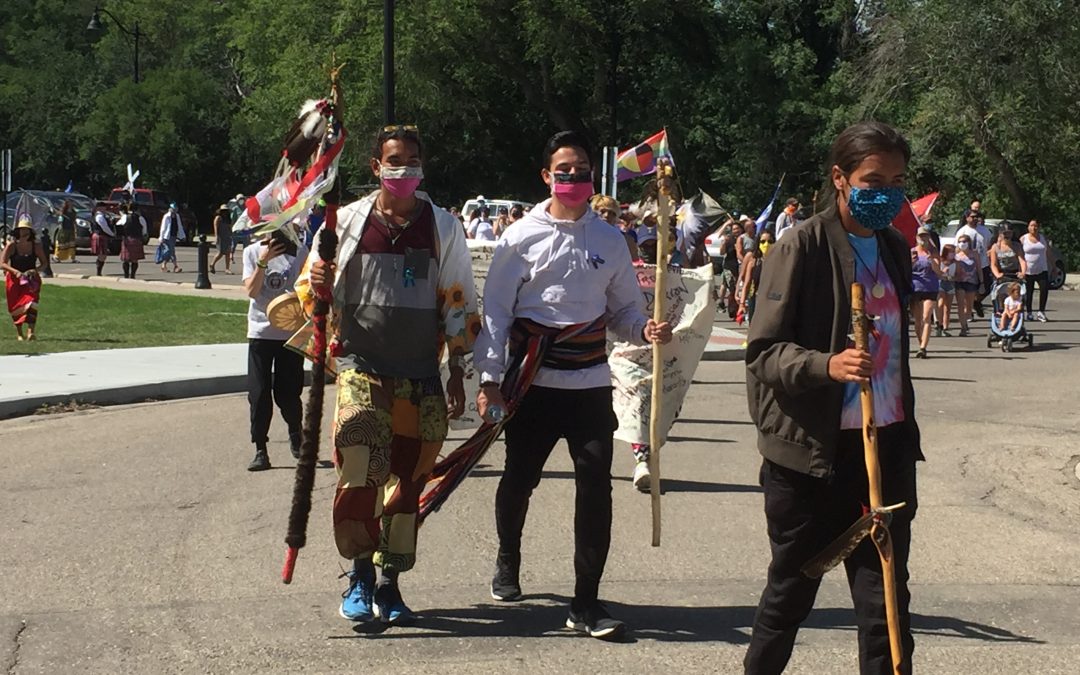One of the most impactful northern stories of 2020 is a single man’s quest to raise awareness to high rates of suicide in Northern Saskatchewan.
In July Tristen Durocher walked from Air Ronge to Regina, as he was not pleased with the provincial government’s suicide prevention plan, alleging it did not go far enough.
When reaching the Legislature in late July, Durocher setup a teepee on the west lawn, as a demonstration calling for greater action.
He would fast there for 44-days, each day representing a Sask. Party MLA who voted against NDP MLA Doyle Vermette’s private members bill call for the creation of a suicide plan.
“All 44 said no. It was a unanimous display of a lethal indifference that in 2020 is absolutely intolerable. And that is why we are here, that is why we walked here,” said Durocher at the Legislature.
In August a delegation of northern Chiefs arrived at the Legislature to support Durocher. “Suicide is a huge issue and it continues to affect us each and everyday and its something we need to give hope and do something concrete,” explained Lac La Ronge Indian Band Chief Tammy Cook-Searson.
Adjacent to Durocher’s teepee were approximately 100 sign-style photographs of Saskatchewan people who died by suicide, to serve as a reminder for those who visit the devastation suicide causes.
“There is no long-term solution for our people. We don’t have the tools, we don’t have the funds to save our people,” Chief Louis Mercredi of the Fond du Lac Denesuline First Nation said.
The province would take Durocher to court in September, claiming he was trespassing and violating Wascana Park bylaws.
Yet Durocher claimed Charter Rights to expression and religion as reasons for staying. A judge sided with Durocher, who would end his fast in mid-September.
“I conclude further that the impugned Bylaws do not qualify as reasonable limitations upon those rights as they clothe the Wascana Centre Authority and its delegate with unfettered and absolute authority to grant a permit to public lands, and provide no exception or accommodation for constitutionally protected political and spiritual expression of the kind at issue in this case,” ruled Justice Graeme Mitchell on September 11.
The province did not appeal the ruling, opting to examine Wascana Park Bylaws. Following the provincial election, Premier Scott Moe would rename his Rural and Remote Health Ministry to include mental health and addictions and recommit to implementing the provincial “Pillars of Life” plan.
